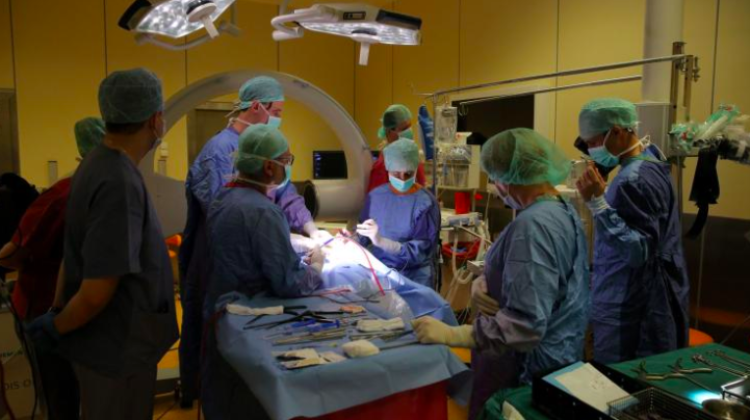Treatment of coma - better effects in trauma patients
 Photo: PAP/Tomasz Waszczuk 26.07.2016
Photo: PAP/Tomasz Waszczuk 26.07.2016
Treatment of patients in a coma gives better results in people who are in this state as a result of an injury. It is much more difficult to improve the condition of patients who are in a coma due to brain hypoxia, according to the research and observations of scientists from Olsztyn.
Doctors from the Olsztyn university hospital have been dealing with patients in comas for several years: they diagnose patients` condition by differentiating patients in a vegetative state from those in a state of minimal consciousness; they run the "Alarm Clock for Adults" and carry out a number of scientific grants concerning comas.
One of the scientific experiments performed at the university hospital in Olsztyn in 2016 consisted in implanting spinal cord stimulators in patients in a state of minimal awareness. In total, 16 such procedures were performed.
"We constantly monitor the condition of patients with stimulators, they are regularly subjected to tests. Our observations so far allow to state that much better results are achieved in patients who are in a coma as a result of trauma, for example transport accidents. We are seeing much worse results in patients who have suffered hypoxia, for example as a result of asphyxiation" - told PAP director of the university hospital in Olsztyn, neurosurgeon Dr. Łukasz Grabarczyk.
In an interview with PAP, Dr Grabarczyk admitted that the findings of the Olsztyn coma researchers are consistent with the observations of scientists from Belgium and the UK. "Our research and observations are perhaps even more decisive in assessments than studies from other science centres dealing with comas" - said Dr. Grabarczyk. He stressed that not many scientific centres deal with comas.
Among the 16 people that Olsztyn doctors implanted with stimulators two years ago, improvements were observed in all patients, and - according to Dr. Grabarczyk - the level of improvement was "significantly less spectacular" in people with hypoxia.
"Several people who were in a coma as a result of a traffic accident regained consciousness thanks to the stimulators. Those people are able to communicate with their environment" - said Dr. Grabarczyk. He noted that this communication was not always verbal, because due to the trauma the brain that responsible for speech was damaged. "But communication with gestures or writing is a lot, considering that there was practically no contact with these people before implanting stimulators" - said Dr. Grabarczyk.
One of the patients with an implanted stimulators very quickly woke up from a coma and now speaks very well. But as a result of an accident he can not move independently and requires physiotherapy.
Patients who received stimulators are still undergoing spinal cord stimulation. The devices that send electrical impulses are turned on during the day and do not work during the night. "The stimulation is adjusted not to cause the patients any pain, on the contrary - the stimuli are pleasant for these people" - explained the doctor.
In an interview with PAP, Dr. Grabarczyk admitted that families of further people in comas, who want their relatives to have stimulators implanted, are reporting to Olsztyn specialists. "We do not have the money for this yet. Previous treatments were financed by the Ewa Błaszczyk Foundation "Akogo?" - said the neurosurgeon.
Doctors from Olsztyn also run an experiment, in which stem cells have been given to cerebrospinal fluid to patients in comas. "We are observing these patients and it seems that we will have good results, but for now too little time has passed for specific conclusions" - admitted Dr. Grabarczyk. Administration of stem cells to people in comas was financed with funds allocated as part of a National Centre for Research and Development grant.
PAP - Nauka w Polsce, Joanna Kiewisz-Wojciechowska
jwo/ zan/ kap/
tr. RL
Przed dodaniem komentarza prosimy o zapoznanie z Regulaminem forum serwisu Nauka w Polsce.















